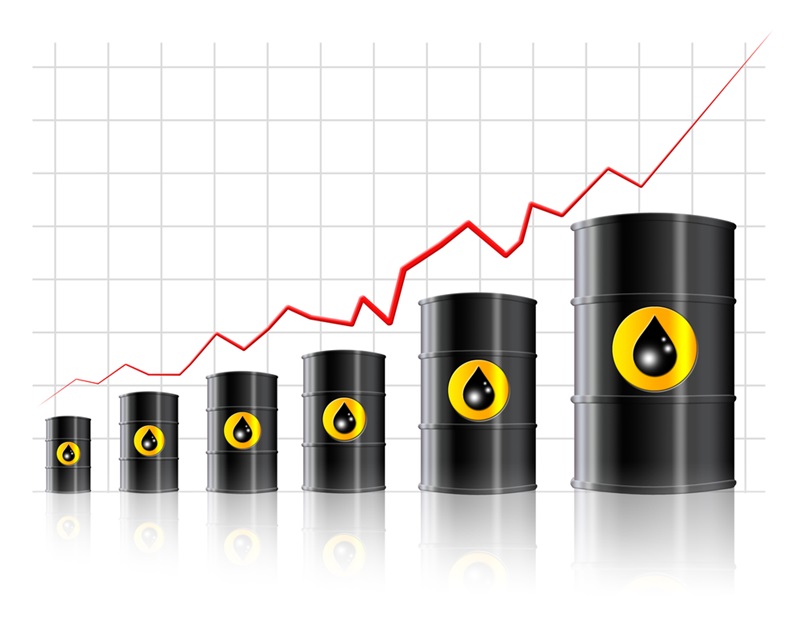Geopolitics and Oil Price Fluctuations: Two forces that shape our world like no other. Every rise and dip in oil prices echoes across continents, influencing economies and dictating the moves of political leaders. As an expert, I’ve seen first-hand how oil prices can turn the global energy market into a high-stakes chess game. In this landscape, understanding the link between geopolitics and those prices is vital. Let me guide you through this intricate game of power and energy.
The Complex Web of Geopolitics and Oil Prices
Analyzing Recent Geopolitical Events Impacting Oil Markets
Oil prices dance to the tune of global events. Every move matters. The Middle East, for example, often takes center stage. Just a hint of tension there, and prices can leap. Wars play a huge part too. Think of how the Iraq conflict rocked the market. The world watched as oil prices soared.
Chaos pushes prices up. Peace can make them fall. It all connects. When the Iraq War began, fear of supply cuts sent prices up. If oil can’t flow freely, economies shake. This scares people who trade oil. They buy more to feel safe, and prices rise. But this balance is fragile. Once peace returns, prices can drop quickly.
The Role of International Relations in Shaping Petroleum Economics
Countries talk, partner up, and sometimes disagree. All these affect oil prices. Take OPEC, a group of oil-rich countries. They decide together how much oil to sell. Their choices can change prices worldwide. When they cut supply, they aim to push prices up. Sometimes they do this to make more money. Other times, to make a statement.
Sanctions, too, stir the oil pot. Countries use them to punish others. Sanctions can block oil sales. This can squeeze the target country’s economy. But it also tightens global oil supply, messing with prices.
The big players, like the US, Russia, and China, matter a lot. Their moves are like ripples in a pond. They affect everyone. The US may use its mighty Strategic Petroleum Reserves. This can calm prices in a pinch. But it’s a short-term fix.
Oil’s future is full of questions. What if electric cars take over? Will we still need as much oil? Maybe not. This could lower demand and prices. But it’s a slow process. We’re not there yet.
The oil market is vast and tangled. It’s shaped by nations, politics, and countless deals. It’s like a giant chess game. Every country plots its next move carefully. They all want to win, or at least, not lose.
Understanding this game is crucial. It helps us see where oil, and our world, is heading.
The Catalysts of Change in Global Oil Supply and Demand
Understanding OPEC’s Influence on Oil Supply Dynamics
OPEC makes big choices about how much oil to pump. They check on supply and demand. They care about prices. When they cut supply, oil prices can go up. This is because there is less oil, but people still want it.
OPEC is like a club of countries that sell oil. They meet to make plans. They want enough money but not too high prices. They change oil amounts to keep markets happy. Sometimes they pump more oil, sometimes less. It depends on the world’s needs and their goals.
Analyzing Global Oil Demand Trends Amidst Geopolitical Shifting Sands
People and countries always need oil. But, how much they need can change a lot. A big part is how countries get along or fight. Peace can mean more oil flows easy. Wars or bad feelings can make it hard for oil to get around.
Big events change how much oil people use. If countries fight, they might need more for their machines. If they are friends, they might share and use oil together.
Smart people keep an eye on these things. They try to guess how much oil we will need. They look at how countries act and what they need. They use this to think about oil prices in the future. This can help countries plan and people save money.
Strategic Plays in Oil Trading and Forecasting
Deciphering the Impact of Sanctions and Trade Policies on Oil Prices
Sanctions and trade change oil prices a lot. They can stop oil from moving between countries. This makes prices go up or down fast. Sanctions are like a big roadblock in the path of oil going to places that need it. They make it hard for countries to sell their oil, and buyers look elsewhere.
For example, when a country like Iran faces sanctions, they can’t sell their oil easily. Buyers then run to other oil producers to fill the gap. This push and pull is a big deal in the oil game. It shifts who has the power to set prices and who does not.
Another point to remember is when countries can’t trade due to politics or wars. This can shake up the whole oil market like a giant snow globe. Countries with lots of oil, like Russia, can use it as a tool. They can turn the taps on or off to mess with prices or make a point.
Navigating Through Oil Price Volatility with Futures and Geopolitical Analysis
Oil prices jump around like frogs in a pond, and it’s hard to guess where they’ll go next. Oil futures are contracts that let people bet on where prices will be later on. They look at what’s happening in the world and try to predict the oil market’s future.
Geopolitical events have big roles in how oil prices dance. Think about OPEC, a group of countries that decide together how much oil to pump. Their choices can make waves in the market.
The impact of wars is huge too. When there’s fighting near oil fields or pipes, it’s like a monster scaring away the flow of oil. When oil can’t get through, everyone starts to worry. They don’t know if there will be enough oil to go around.
Then there’s the role of big countries in this game. The US, Russia, and China have mighty appetites for oil. Their moves impact everyone. If China needs more oil, it can make prices climb. If the US pumps out lots of oil, the global price might drop.
Political stability is like the oil market’s heartbeat. If a country with lots of oil feels unsteady, prices might spike. Investors and countries rush to protect their energy needs.
Oil price volatility is a tricky beast to ride. But with sharp eyes on the news and smart bets on futures, one can navigate the waves. Oil traders watch the world closely. They’re ready to pivot as the geopolitical winds change direction.
In this high-stakes game of oil trading and forecasting, every move on the global stage matters. From shifts in power to sudden crises, all play parts in the world’s thirst for energy. It’s a strategic game of chess, where oil is the king everyone tries to protect and capture at the same time.
The Future of Energy: Security, Policy, and Market Predictions
Energy Security Measures and Political Maneuvering in Oil-Dependent Economies
Oil runs our world. It heats our homes and fuels our cars. But it’s more than that. It’s a tool countries use to show power. A country with plenty of oil can have big sway on the global stage. These countries work hard to protect their oil. They make plans to keep oil safe and flowing. Think of a big game of chess where oil is the king everyone tries to defend. Some countries keep extra oil stored up just in case. They call this their strategic petroleum reserves. This is a stash of oil for emergency use, like a giant savings account. Countries with oil must also stay stable. If they don’t, it can stir trouble in oil markets far and wide.
Political moves play a big part in this game. Deals are made, or sometimes they fall apart. If a country has turmoil, it can’t get its oil out to sell. This makes prices jump because there’s less oil to go around. Countries try to avoid this. They make deals with each other to help keep the peace. This way, oil keeps moving, and prices stay more stable. It’s this dance between safety, supply, and deals that keeps oil prices on their toes.
The Interplay between Renewables and the Geopolitics of Traditional Oil Markets
Now, let’s talk about something new shaking up the oil world. It’s called renewable energy. Things like wind, sun, and water are stepping into the ring. These can make power without needing oil. They’re getting more popular because they pollute less. Renewables are changing the game. Oil countries are watching this change. They know they need to plan for a future where oil might not be the top dog.
Renewables might make you think oil will become worthless soon. But not so fast. Oil remains a giant in the energy world. Cars, planes, and many industries still need it every day. Renewables are growing, but we can’t switch overnight. This shift to new energy is a slow race, not a sprint.
Right now, oil leaders and countries with lots of sun or wind power are looking at each other closely. They’re thinking hard about what the other’s next move might be. Who will take the lead? It’s a mix of old power and new ideas. We’re all wondering how this will shake out. What we do know is that the shift to renewables pokes at the usual way oil markets work. It makes oil countries think about tomorrow, not just today. They’re asking, “How will we stay strong if the world needs less oil?”
Oil prices swing with the winds of change. Geopolitics play a huge part in these swings. It’s like a big puzzle where each piece moves. Some pieces are countries with oil. Others are those making laws or fighting wars. Add in people wanting cleaner air, and you see why oil prices can be a wild ride.
Keeping an eye on all these parts helps us guess where oil prices might go. But remember, it’s just a guess. Oil is a tricky beast, and even experts can’t always say what will happen next. We watch, we learn, and we get ready for tomorrow’s energy world. It’s a challenge, but one thing’s sure: change is coming, and with it, new ways to think about energy, power, and how we keep the lights on.
We dug deep into the ties between politics and oil. We saw how events sway markets and how nations shape oil’s flow and cost. We unpacked OPEC’s power and global demand shifts. Then, we explored trade moves and how to bet on oil’s ups and downs. We ended with a look at energy’s future, security efforts, and eco-friendly shifts.
I believe understanding these layers is key to making smart choices in energy and finance. Being aware makes us ready for change. Let’s keep an eye on the world’s game of oil and power, and stay sharp. The energy landscape is evolving, and so must we.
Q&A :
How do geopolitics influence oil price fluctuations?
Geopolitics is a significant driver behind oil price volatility. Political events, such as conflicts, international sanctions, and agreements between oil-producing countries, can disrupt oil supply or alter the global demand for energy. Stability in oil-producing regions tends to contribute to steady oil prices, while geopolitical tensions can lead to spikes or drops in prices due to changing expectations of supply availability or shifts in global energy policies.
What are the impacts of oil price changes on the global economy?
Oil price changes have far-reaching effects on the global economy. High oil prices can lead to increased costs for transportation and manufacturing, which can contribute to inflation and a slowdown in economic growth. Conversely, low oil prices may benefit oil-importing countries through lower energy costs but can hurt oil-exporting countries by reducing their revenue streams. Sudden changes in oil prices can create economic uncertainty and affect everything from consumer spending to investment in energy sectors.
Can the actions of OPEC affect global oil prices?
OPEC, or the Organization of the Petroleum Exporting Countries, plays a significant role in shaping global oil prices. As a collective of some of the world’s largest oil producers, OPEC can influence prices by setting production quotas among its member nations. By increasing or decreasing oil production, OPEC can try to stabilize the oil market or affect the supply to push prices in a certain direction. However, its influence is limited by the production decisions of non-OPEC countries and other market factors.
How does oil price fluctuation affect geopolitical stability?
Oil price fluctuations can significantly impact geopolitical stability. For countries that rely heavily on oil revenue, a drop in oil prices can lead to economic distress, which in turn can exacerbate political tensions and lead to civil unrest. Conversely, an increase in oil prices can embolden oil-rich states to exert more influence on the international stage, sometimes leading to aggressive foreign policy stances. The cycle of oil-dependency and price vulnerability can thus lead to fluctuating degrees of stability and unrest in different regions.
What role does oil price play in energy policy decisions?
Oil price is a critical factor in the formation of national energy policies. Governments must consider the cost of oil when planning for energy infrastructure, subsidies, and regulations. High oil prices might accelerate the transition to alternative energy sources, while lower prices may reduce the urgency to invest in renewable technologies. Additionally, oil prices can influence regulatory decisions related to environmental protection and greenhouse gas emissions as governments balance economic and ecological considerations.





